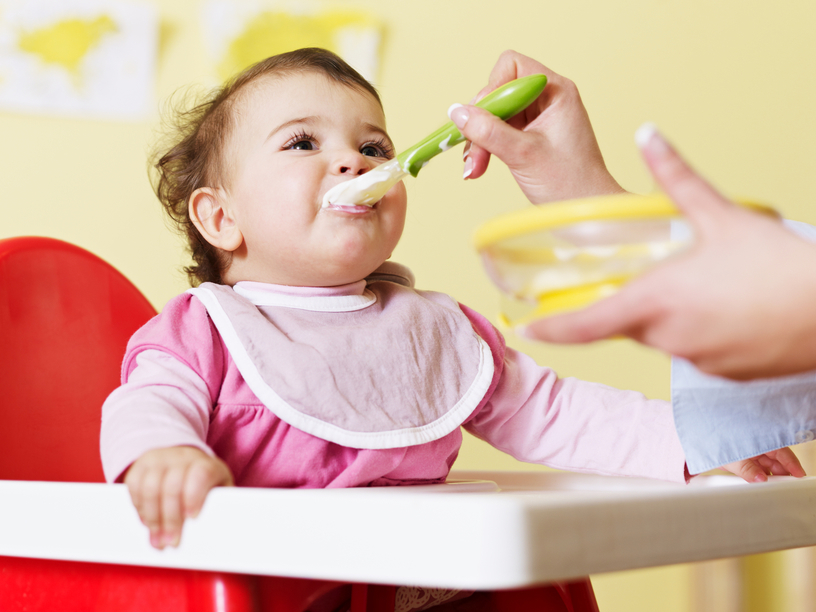Your little bundle of joy is six months old, and has reached the important milestone of introducing solids.
Remember the following Do’s and Don’ts to make the transition from breastfeeding/formula feeding to starting solids, easy for your child.
Do’s:
- DO consult your pediatrician before starting solid foods. Most doctors agree that the optimum time to initiate your baby on solid foods is at 6 months of age. Consider physical signs, such as sitting up with limited support, good head and neck control and keeping most of the food in the mouth and swallowing it, that signify your baby’s readiness for solid food items.
- DO begin with a single-grain infant cereal mixed with breast milk or formula, or a mashed fruit or vegetable. Some easily tolerated first foods are iron-fortified infant rice or oatmeal cereal, mashed banana, carrots, sweet potato, pears or peas. Wait for three to four days before introducing another food to your baby. In case you suspect a reaction, stop feeding your child the new food immediately and contact the pediatrician.
- DO Most of the first few solid-food feedings will wind up on your baby’s face, hands and bib. Start small, give your baby about one to two teaspoons of pureed food at the beginning. Gradually increase this amount of food over time.
Don’ts:
- DON’T compare your baby’s progress or readiness to start solids to another baby. Do not force your baby to eat if she/he is crying or turning away when you offer solids. Your child might not be ready to try eating from a spoon, or she/he might just not be hungry.
- DON’T stop breast-feeding or formula-feeding your child just because you’re introducing your li’l one to solids. Breast milk or formula still remains your baby’s most important source of nourishment and energy. And, remember to never add honey, salt or sugar to baby food to convince your baby into liking it.
- DON’T ever feed your baby solid foods from a bottle as it can turn into a breeding ground for germs. Spoon-feed from a bowl and not from the food utensil unless you are pretty sure that the baby will finish it. Feeding directly from the main bowl may introduce germs from the baby’s mouth to the spoon and back into the food, making it go bad super quick. If your baby is still hungry, use a clean spoon to take more food from the main bowl. Sometimes children will turn away from the spoon or clamp their mouth closed. If this happens, stop feeding your baby. Remember to never force-feed a baby.
Come what may, do not get discouraged as babies need time to get adapted to new foods. Whenever introducing new food, wait for 3 days before starting any new food item. Bring in loads of patience and creativity in the mix and you can make your baby’s first solid food eating experience enjoyable.
Image Source: scienceofmom.com

